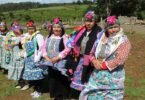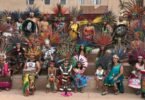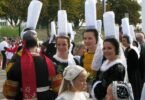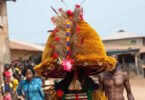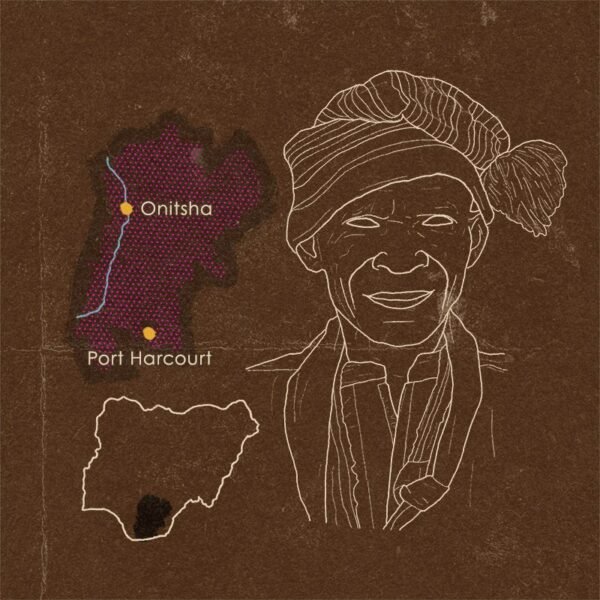
The Igbo ethnic group of Nigeria is credited with a rich cultural identity, and books such as this one show really reflect the history of the people, their traditions, and social cohesiveness. Igbo People’s culture is the living testimony of Nigerians and people from the southeast region and beyond, with a population counting over 30 million persons.
This article will uncover the most interesting aspects regarding the Igbo ethnic group with focus on their customs, faiths, ceremonies, and their input in the world.
Historical Overview
The people referred to as Igbo are among Africa’s oldest groups of people and can be dated back thousands of years. Local folklore has it that they originated from the early Bantu speakers while historical and trace archaeology indicates that members of the Igbo ethnic group settled in parts of present-day Nigeria such as Nsuka and Igbo-Ukwu in prehistoric times. These areas have produced such items as delicate bronze and copper hearts that are clear evidence of early Igbo socieities’ sophistication.
This paper also posits that colonial history contributes to modern Igbo identity. Although, British colonization led to the denial of ethnic pluralism, despotic strikes, and suppression of traditional institutions, most of the Igbos preserved their worth and flexibility. This resilience played a very important role in Nigeria’s independence movement.
Language and Communication
The Igbo language is a defining aspect of their cultural heritage. Spoken by millions, it is part of the Niger-Congo language family and boasts numerous dialects. Igbo has rich oral traditions, with folktales, proverbs, and idiomatic expressions playing a central role in communication and education.
Proverbs, especially, are vital in Igbo culture. They encapsulate wisdom and are often used to emphasize points during discussions or storytelling. For example, the proverb, “Nwata kọrọ ihe eji akpa nwa ọ ga-akpa ya mgbe o toro,” meaning “A child who learns how to carry a baby basket will use it when grown,” emphasizes the value of early preparation and responsibility.
Igbo Traditional Religion
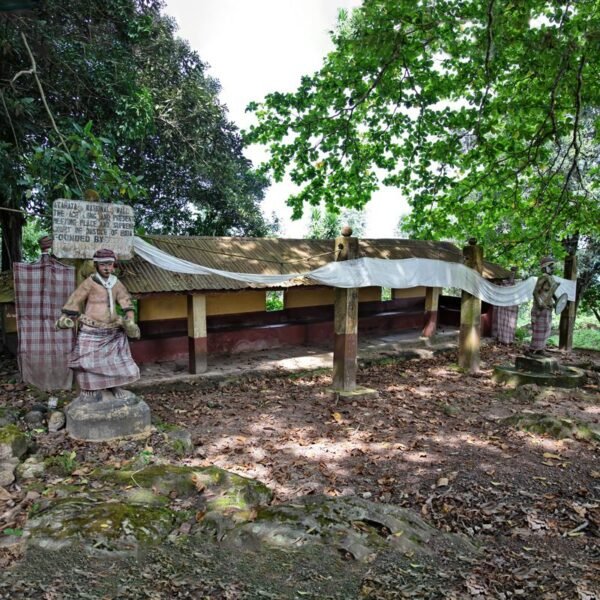
Even before the white missionaries introduced Christianity among the Igbo people, the community dew to nature had a traditional belief system. In the center of this belief system, there is Chukwu, also referred to as ‘Chi’ which is conceived as the supreme God, together with scores of minor deities or alusi who direct activities associated with fertility, farming, protection and so on.
Another significant part of Igbo religious belief includes ancestor worship. They are believed to help their descendants communicate with gods or spirits; which are honored by offering gifts during celebrations. Kaw is an open-air those that are used for worshipping, consulting, and congregating are shrines and groves respectively.
Igbo Festivals and Celebrations
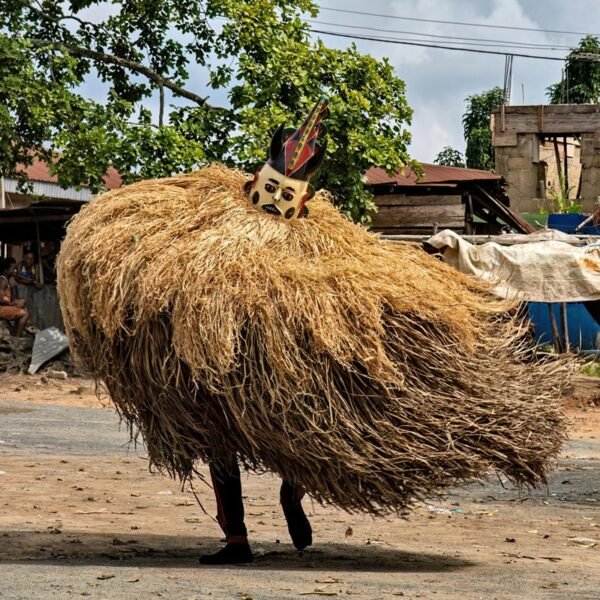
Festivals are vibrant expressions of Igbo culture, often marking important agricultural, spiritual, and social milestones. Some of the most notable Igbo festivals include:
1. New Yam Festival (Iri Ji Ọhụrụ):
This festival celebrates the yam, a staple crop and symbol of prosperity. Held annually, it includes rituals, feasting, and traditional dances to give thanks for the harvest and seek blessings for the next planting season.
2. Mmanwu (Masquerade) Festival:
The Mmanwu festival is a cultural spectacle featuring colorful masquerades that embody ancestral spirits. These masquerades entertain, educate, and mediate between the spiritual and physical worlds.
3. Ofala Festival:
Celebrated by Igbo monarchs, the Ofala Festival is a regal affair symbolizing the king’s authority and community unity. It includes elaborate processions, music, and dances.
Marriage Traditions
Marriage in Igbo land is elaborate due to the recognition of families and the community in a marriage. What it entails is, there are quite a number of rites but probably the most evident ones are known as the Ikụ Aka where families are formally introduced to each other and the ceremony known as the Igba Nkwụ.
It is also customary at a wedding ceremony to have the bride presenting the groom with palm wine as a demonstration of the union. Other components include bride price (ime ego), although now many are given for symbolic value, but still important given as evidence of the worth of the bride and regard for her family.
Food and Cuisine
Igbo cuisine is as diverse as its people, with dishes that emphasize fresh, locally sourced ingredients. Key staples include yam, cassava, rice, and vegetables, often accompanied by richly spiced soups and stews.
Popular Dishes:
Nkwobi: A delicacy made from cow feet, flavored with spices and palm oil.
Ọha Soup: A traditional soup prepared with Ọha leaves, thickened with cocoyam paste.
Abacha (African Salad): Made from shredded cassava, it’s a popular snack or side dish.
These meals are not just for nourishment but also play roles in social gatherings, festivals, and ceremonies, symbolizing hospitality and unity.
Igbo Traditional Attire
The traditional Igbo attire is a vibrant display of their artistry and identity. While the styles may vary across regions, certain elements are universal.
For men, the Isiagu (a richly embroidered shirt) paired with wrappers or trousers is common. Women often wear George wrappers, blouses, and ichafu (headscarves). These outfits are adorned during ceremonies, emphasizing elegance and cultural pride.
Accessories like beads, anklets, and bracelets further highlight their connection to tradition. Red caps, in particular, are symbolic of status and authority in Igbo society.
Music and Dance
Igbo people use music and dance in their daily life for narration, religious purposes and festivities. Igbo music also has a number of percussional instruments which include; the udu-a calabash drum, ogene-a portable gong, ikoro- a slit drum, and ekwe.
Kannakah dance has elements of tradition such as Atilogwu which includes elegance whereby the dancers perform complicated movement trick. Festivals, weddings and other forms of community celebration, these dances are popular throughout the region.
Igbo Innovations and Contributions
Over the centuries, the Igbo people have shown themselves to be notoriously resourceful. Dating back into their bronze sculptures at Igbo-Ukwu and their trade during pre-colonial time, the Igbo are inventors.
Today, the major compose of nationality the Igbo people are best known for their high level of entrepreneurship in business activities from commercial enterprise to technological innovation. Aba and Onitsha are among the most important business centers that prove the amazing ability of the Igbo people.
Challenges and Preservation Efforts
Consequently, there are different factors affecting the Igbo culture: globalization, migration, and deterioration of experience and customs. There have been concerted attempts to perpetuate the usage of the Igbo language and the practice of their culture by organisations, academicians, and individuals. Programs such as learning of the Igbo language, cultural celebrations and online libraries help to make sure that there is continuity into the future.
Conclusion
Igbo culture, therefore, depositories on the wealth of history and traditions of the Igbo people and their resiliency. In their communication, food, celebrations and technology, the Igbos continue to enthuse history of a people bonded with their identity and territory. Hence, it is here, amidst the united forces of a globalized world that the need to maintain, conserve, and nurture Igbo culture for both Igbo and the world is critical as a reminder of the human diversity of culture.

